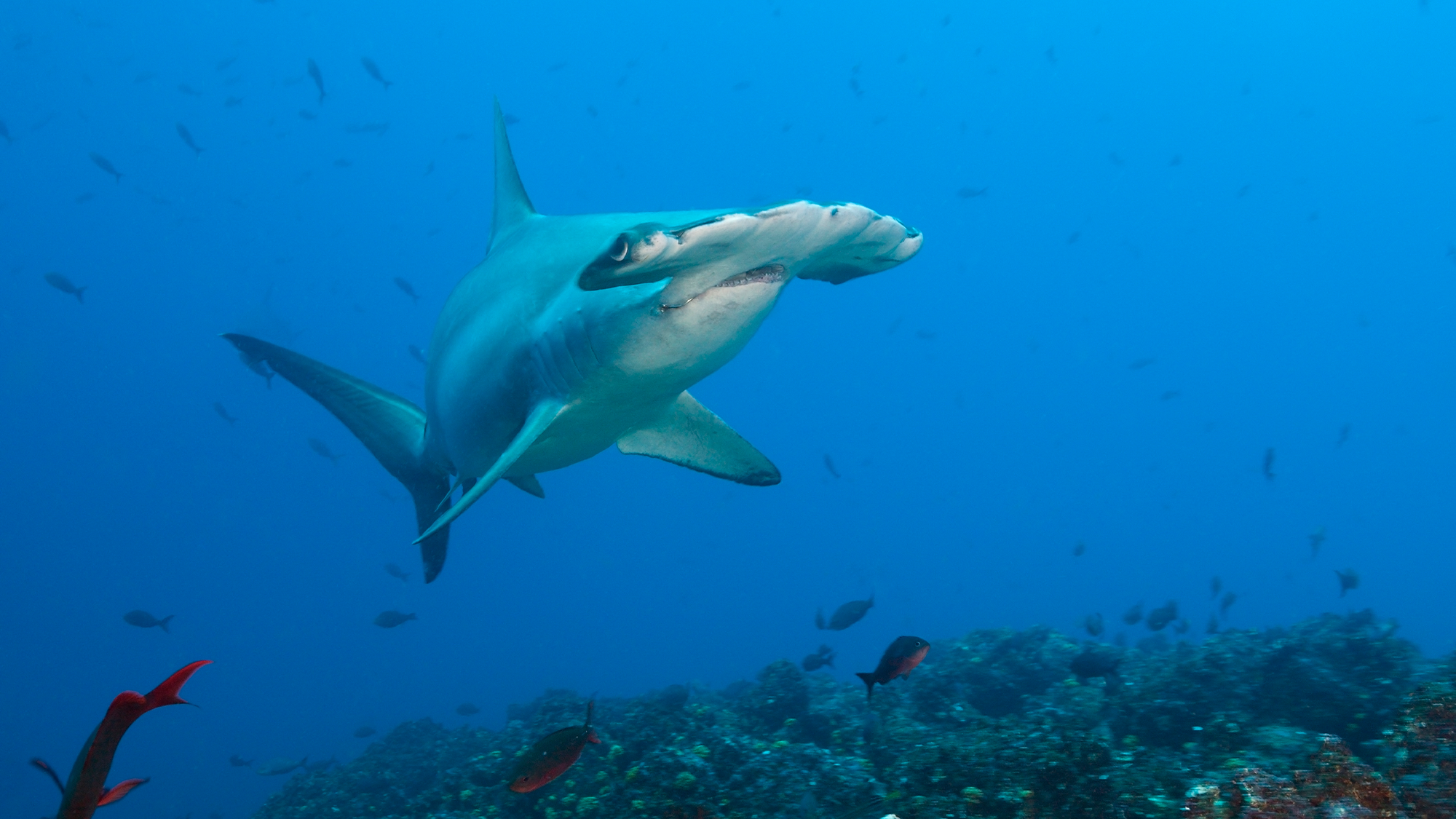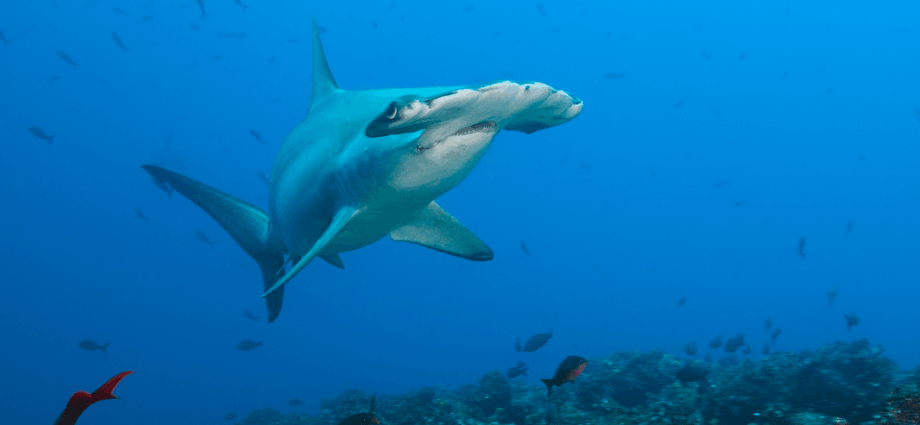
Get the Popular Science daily newsletter💡
Breakthroughs, discoveries, and DIY tips sent every weekday.
Sharks have been swimming in Earth’s seas over 450 million years, but some struggling shark species may be ending up on grocery store shelves, in fish markets, and even sold online. Meat from shark species at risk of extinction is still available for sale in the United States, despite lawmaker’s best efforts.
“We found critically endangered sharks, including great hammerhead and scalloped hammerhead, being sold in grocery stores, seafood markets, and online,” said Dr. Savannah J. Ryburn, a marine ecologist at University of North Carolina at Chapel Hill and co-author of a small study recently published in Frontiers in Marine Science. “Of the 29 samples, 93 percent were ambiguously labeled as ‘shark,’ and one of the two products labeled at the species level was mislabeled.”
In the new study, a seafood forensic class at UNC bought 30 different shark products–19 raw steaks and 11 packages of shark jerky. All of the items were purchased either from the internet or shops in Washington DC, North Carolina, Florida, and Georgia. The team then used DNA barcoding to determine the species of each product. That genetic evidence was then compared with the product’s label.
Almost all of the samples were ambiguously labeled and did not indicate the particular species of shark. Some were also flat out wrong. One was sold as blacktip shark (designated as vulnerable), while it really contained meat from the endangered shortfin mako.

Of their sample, 31 percent turned out to be from four endangered or critically endangered species: great hammerhead, scalloped hammerhead, tope, and shortfin mako shark. The others were from another seven species, including the vulnerable spinner, lemon, common thresher, and blacktip shark. Only one of the products sampled came from a least concern species, the Atlantic sharpnose shark.
“Sharks such as great and scalloped hammerheads are the ocean’s equivalent of lions, and we were shocked by how cheaply the meat of these rare, long-lived apex predators was sold,” added Ryburn. “Some samples were only $2.99 per pound.”
Additionally, three of the species found in this study (scalloped hammerhead, great hammerhead, and dusky smooth-hound shark) are known to contain high levels of the metals arsenic, methylmercury and mercury. Methylmercury and mercury can damage the brain and central nervous system, while arsenic can lead to cancer.
According to the International Union for the Conservation of Nature (IUCN), of the approximately 550 species of sharks in existence, 14 percent are vulnerable, 11 percent are endangered, and 12 percent critically endangered.
[ Related: How to operate on a shark in 10 minutes or less. ]
The Convention on International Trade in Endangered Species of Wild Fauna and Flora (CITES) and Endangered Species Act are some of the laws in place to regulate shark meat sales. Under CITES, 74 species of shark are considered at-risk and banned or highly regulated, but the reality is more murky. The legality of selling shark meat in the US mostly depends on where the shark was caught and which species. Fishing for large shark species is only illegal depending on the location. By the time these catches reach the market, they are often sold as fillets and do not have their usual distinguishing features. This makes it difficult if not impossible for consumers to know what they are really eating.
For consumers, accurate labeling is essential to keep critically endangered sharks off of store shelves and dinner plates.
“Sellers in the United States should be required to provide species-specific names, and when shark meat is not a food security necessity, consumers should avoid purchasing products that lack species-level labeling or traceable sourcing,” Ryburn said.

More deals, reviews, and buying guides
The PopSci team has tested hundreds of products and spent thousands of hours trying to find the best gear and gadgets you can buy.

